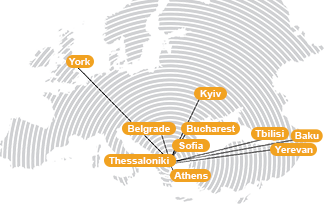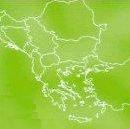The theme of the workshop was twofold: ‘Formal Methods for Web Services’ and ‘Formal Methods for Agent-based Systems’. The workshop has attracted participation from academics and researchers from all over the world. The affiliation of the 50 authors participating in the submitted papers were from 10 different countries, such as Turkey, Greece, China, New Zealand, Jordan, Thailand, Germany, Finland, and United Kingdom.
The workshop was attended by 25 participants. All participants expressed their high interest in the workshop themes and their satisfaction from the original contributions and the high quality presentations.
Keynote speeches were addressed by two distinguished speakers, NASA expert Prof. Mike Hinchey, Scientific Director of Lero, the Irish Software Engineering Research Centre, and Professor of Software Engineering at University of Limerick, and IBM awarded Prof. Wolfgang Reisig, Professor at the Humboldt-University of Berlin, Germany.
The workshop closed with a brainstorming session and a panel discussion in which the challenges, the problems, the opportunities and the future of Formal Methods were lively discussed. All attendees were asked to list the issues that they believed to be contemporary challenges in the field. The topics were then collected and categorised, and a discussion followed concentrating on the issues most widely identified such as: persuading the industry for the importance of formal methods, educating students in formal methods, developing user-friendly industrial tools, and demonstrating the importance with the use of large-scale case studies and relevant successes.






